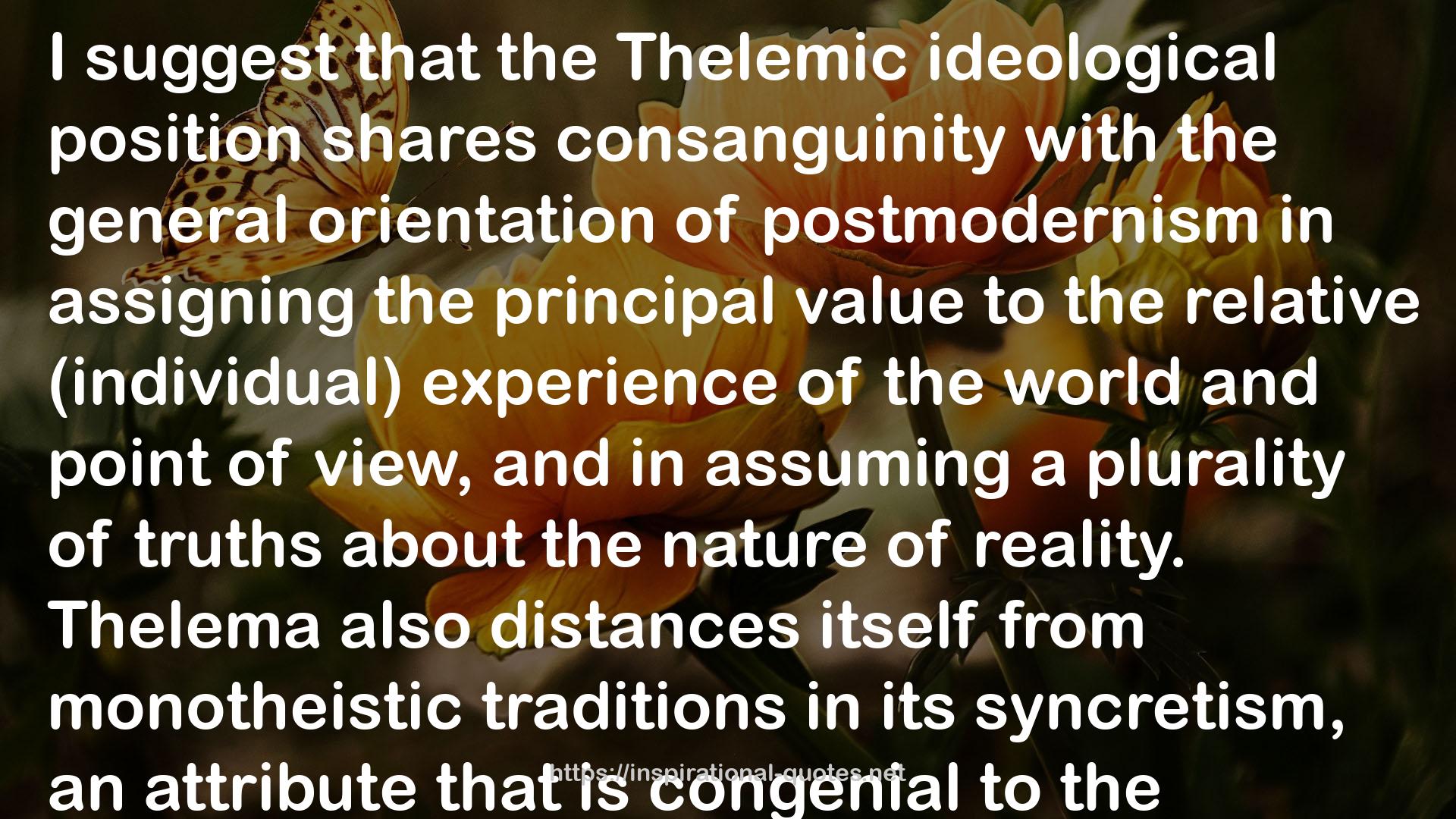The Birth of the New Aeon: Magick and Mysticism of Thelema from the Perspective of Postmodern A/Theology QUOTES
1 " I suggest that the Thelemic ideological position shares consanguinity with the general orientation of postmodernism in assigning the principal value to the relative (individual) experience of the world and point of view, and in assuming a plurality of truths about the nature of reality. Thelema also distances itself from monotheistic traditions in its syncretism, an attribute that is congenial to the worldview of esotericism and shares parallels with the postmodern notions of pastiche and intertextuality. Hermeneutically, Thelemic perspective is at home with the conjectures about the death of author and with the reader-response theories of literary criticism, for its central scripture, The Book of the Law, is denied an official commentary and the meaning of the text is left to be decided ‘each for himself.’ In addition, Thelema abounds in aporias to such an extent that the play of contradictions and reversals provides ‘the key’ to The Book of the Law. By claiming that “existence is pure joy” (AL II: 9) this ideology seems to incarnate what Nietzsche, a major influence on both Crowley and postmodernism, calls la gaya scienza; the other links to Nietzsche include notions such as will to power, glorification of individualism, martial rhetoric, and a critique of Christianity. My main argument is that Thelema may be conceptualized as a postmodern, post-monotheistic, esoteric religion. "
2 " The Book of the Law, the central scripture of the New Aeon, to a certain degree deconstructs itself explicitly, while the play of contradictions, or the refusal to ascertain veracity to any truth claim, constitutes an important epistemological principle of Thelema and its associated form of spiritual practice, magick. The Book of the Law resists interpretation on several levels but its central aporia is that it proclaims the law, which generally refers to a restrictive force, the message of which is freedom, expressed through a precept “Do what thou wilt” (AL I:40), while “The word of Sin is Restriction” (AL I: 41). The ‘key’ to the book, similarly, consists of the interplay between concepts AL, meaning God, and LA, meaning Not: the one negates the other, while both simultaneously coexist in the sate of coincidentia oppositorum. "
 The Birth of the New Aeon: Magick and Mysticism of Thelema from the Perspective of Postmodern A/Theology
The Birth of the New Aeon: Magick and Mysticism of Thelema from the Perspective of Postmodern A/Theologydetail
- The Magnificent Lives of Marjorie Post
- Under One Roof (The STEMinist Novellas, #1)
- Stuck with You (The STEMinist Novellas, #2)
- Below Zero (The STEMinist Novellas, #3)
- Vatican Waltz
- The Delight of Being Ordinary
- American Savior: A Novel of Divine Politics
- Revere Beach Boulevard
- Once Night Falls
- From These Broken Streets
